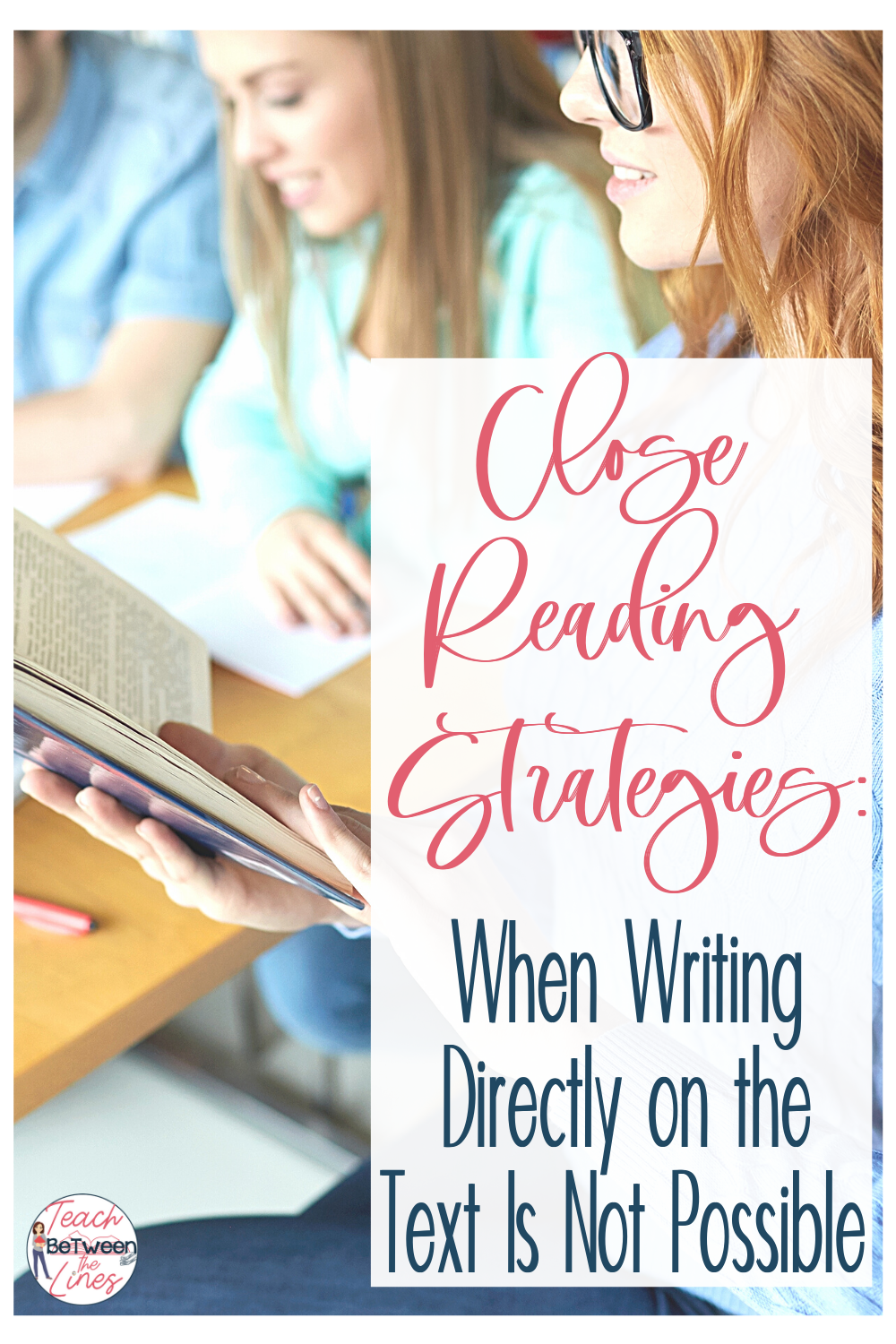When I start teaching close reading strategies, I ask students to "talk to the text." Which means, I ask them to write their metacognitive thoughts all over the text. (Learn more about "talking to the text" HERE). I had students practice with poems and short stories, allowing them to put pencil to paper to share their thinking.
When we moved into our novel unit, I didn't want to lose these close reading strategies- and the great skills that were developing in my students. I spent time reflecting on the skills my students would really need in one, two, five, and ten years down the road. In doing so, I set three goals:
1. Students will be able to identify evidence within a text that is relevant/important to the character and/or plot development.
2. Students will be able to craft a commentary on these passages.
3. Students will continue using the close reading strategies developed in the first few weeks of school. They will be able to think about their thinking and use this metacognition to grow as readers.
I knew I wanted students to practice close reading strategies while also preparing them to write a quality literary analysis paragraph. Because students cannot write directly in the class novels, I created a dialectical journal so students can work on selecting quality evidence while still reflecting on the text. In essence, they can continue to "talk to the text."
Students can quote the text and practice citing text evidence - because we know students need as much practice with this skill as possible. Then, they can add commentary for each passage selected. With this method students are practicing literary analysis work - citing text evidence and drafting commentary on that section of text.
This helped students begin to work on my first two goals, but I still wanted my students to reflect on their own thinking and their growth as a reader.
To do this, I created a Reader's Response Notebook that would allow students to create goals and track those goals throughout the novel. It is so important to me that students begin to see reading as a skill that can be improved. So often, I find that students believe that reading is a skill they either ‘have’ or ‘don’t have.’ At the beginning of each month, we take time to reflect on the goals set in the previous month, and work to set new goals for moving ahead on our reading journey. I ask students guiding questions to support this reflection from the strategies learned and practiced, to their ability to focus on the text or understand the content.
I bound these goal setting documents with the dialectical journals to create this ‘notebook.’ I use this notebook with choice novels, whole class novels, and I even use pieces of this for my literature circle unit!
Assessment:
I ask students to write a letter to me at the end of each month to share the reflections - both on the goals they created and their progress towards these goals. This helps them make sense of these reflections in an organized and supported manner.
I assess students both on their dialectical journal and on their reflection letter. I do try to provide as much feedback as possible on these dialectical journals to help students grow in their next month's journal entries. I have seen SO much growth in my students. They have become better readers, but they have also become reflective learners. I truly can't decide which of these I love more!
To learn more about the Close Reading Strategies Unit & my Reader's Workshop Unit documents click on the images below. If you are looking for some close reading passages to practice close reading and text annotation skills, I have some free passages available here!






